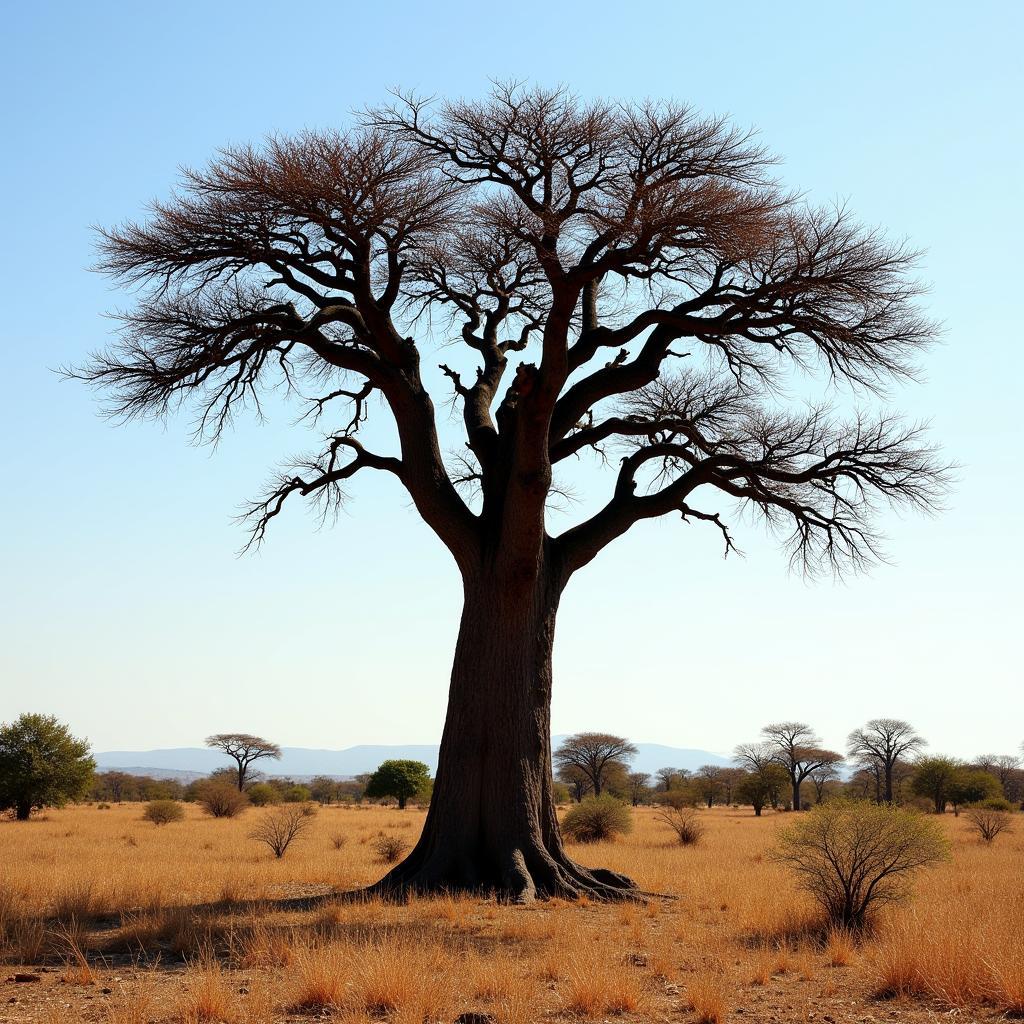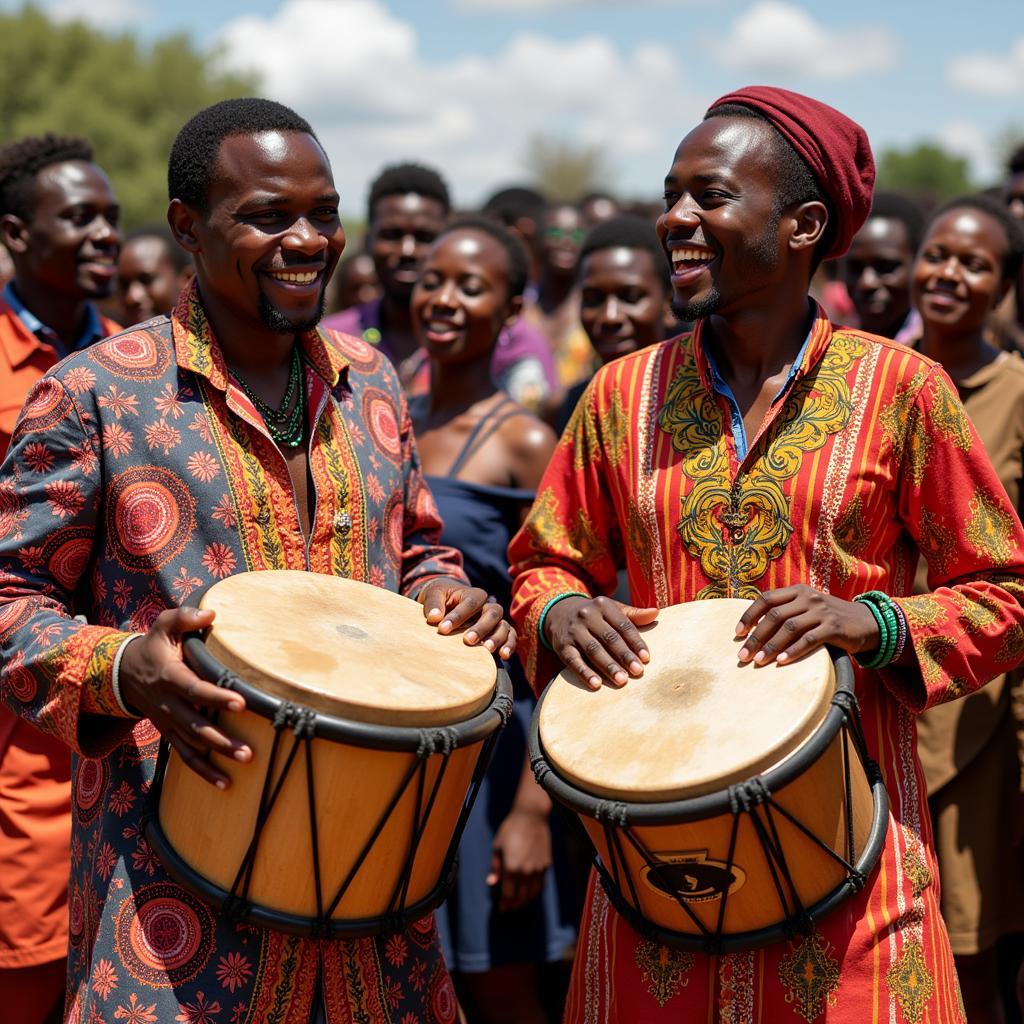The Vital Role of Rituals in African Family Life
From the sun-baked Sahara to the lush rainforests of the Congo Basin, Africa is a continent bursting with rich cultural diversity. One element that unites this vast tapestry of traditions is the profound importance of family and the rituals that bind them. In African cultures, rituals are far more than mere ceremonies; they are the very lifeblood that flows through the generations, shaping identities, strengthening bonds, and connecting the living with their ancestors.
The Many Faces of African Family Rituals
Across the continent, African family rituals encompass a vast spectrum of life events, each imbued with deep cultural significance. Birth, for example, is rarely a private affair. It is a communal celebration, often involving elaborate ceremonies and rituals that welcome the newborn into the family and the wider community.
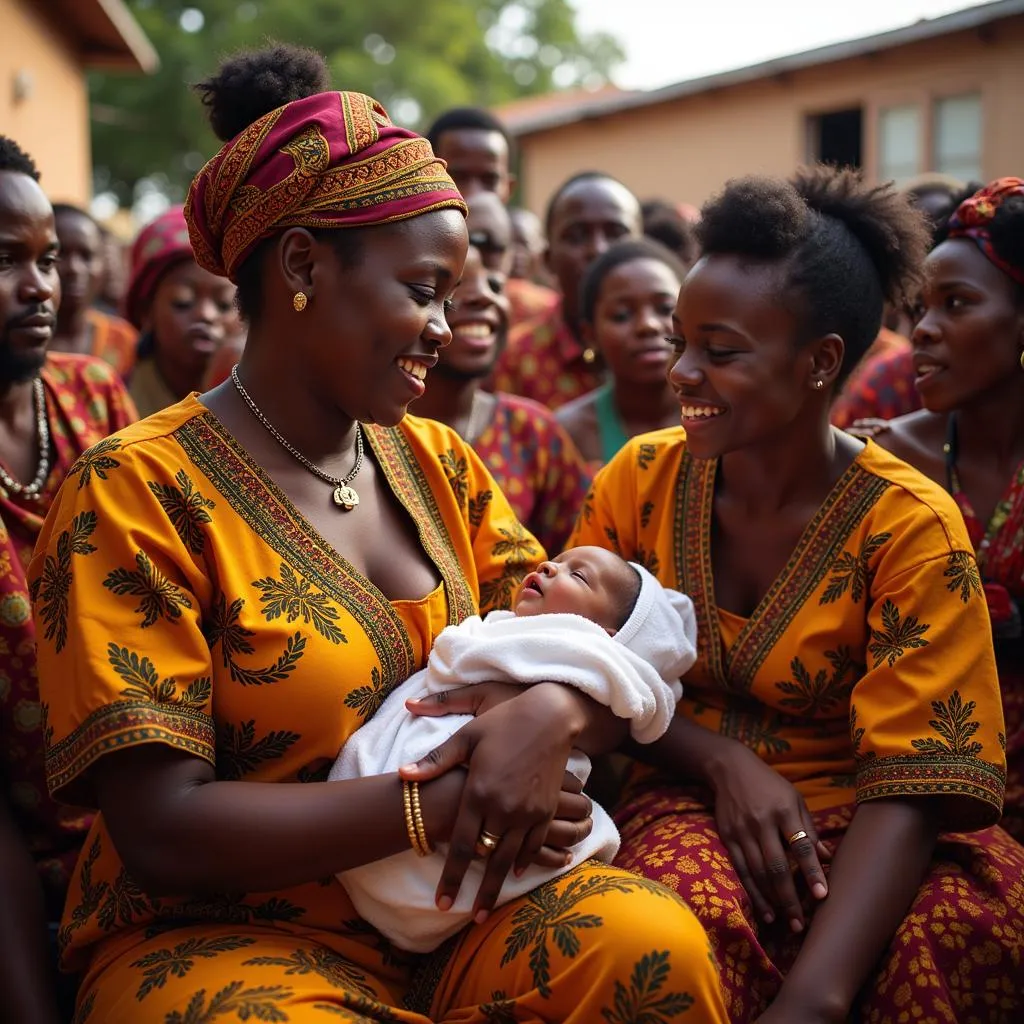 African Baby Naming Ceremony
African Baby Naming Ceremony
Coming-of-age rituals mark the transition from childhood to adulthood, often involving physical and spiritual tests that prepare young people for their future roles. Marriage, a cornerstone of many African societies, is celebrated with intricate ceremonies that can last for days, symbolizing the union not just of two individuals but of two families. Even death, while mourned, is not seen as an end but as a transition, marked by rituals that honor the departed and guide their spirits into the afterlife.
The Threads that Bind: Rituals and Family Cohesion
In an age of rapid globalization and societal shifts, African family rituals play a crucial role in preserving cultural heritage and fostering unity within families and communities. They serve as a tangible link to the past, reminding younger generations of their roots and the values that have shaped their identities.
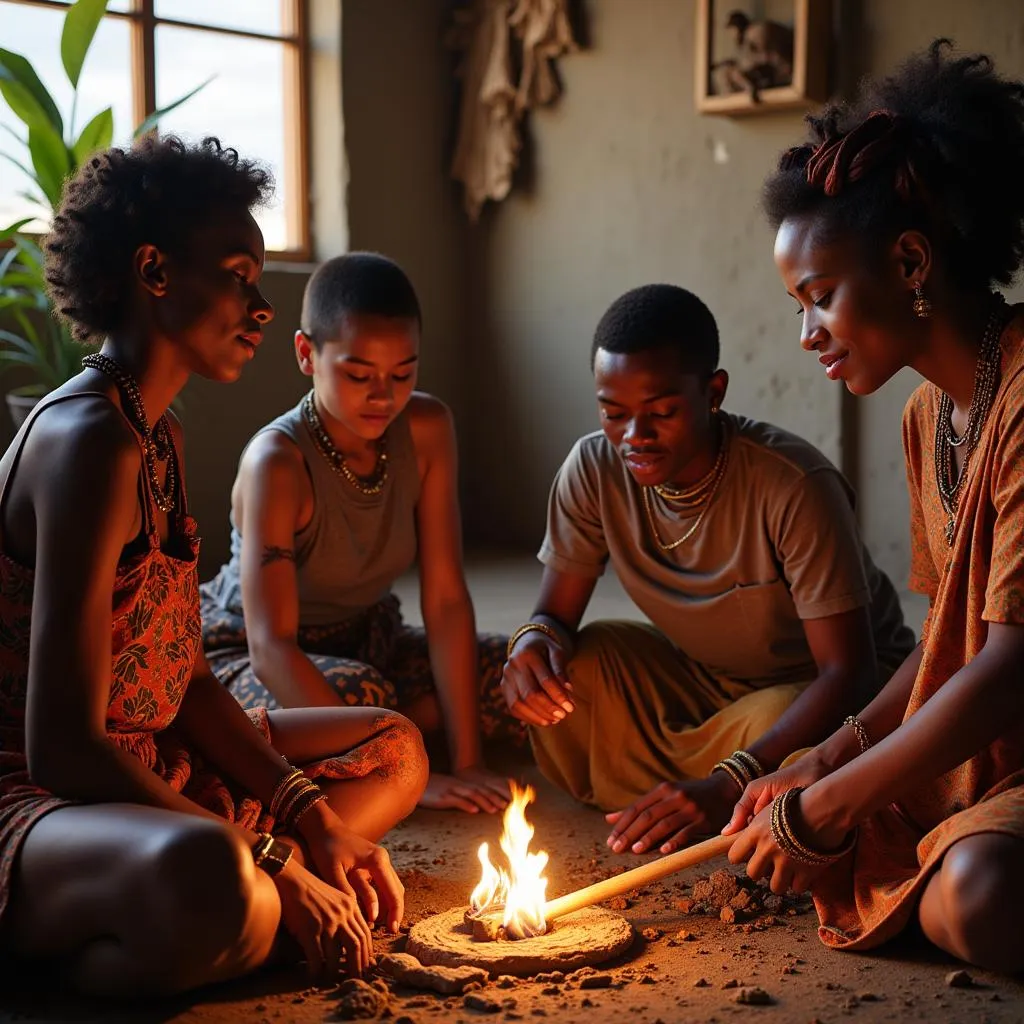 African Family Gathering for Ritual
African Family Gathering for Ritual
These rituals also provide a framework for social interaction, strengthening bonds between family members. They offer opportunities for storytelling, sharing wisdom, and reinforcing shared values, ensuring the continuity of cultural knowledge and traditions.
Navigating Modernity: The Evolution of African Family Rituals
While rooted in tradition, African family rituals are not static. As the continent grapples with modernization and globalization, these rituals are evolving, adapting to contemporary realities without losing their essence. In urban centers, for instance, rituals might be condensed or modified to fit busy lifestyles, demonstrating a remarkable resilience and ability to remain relevant in changing times.
This adaptation ensures that even as younger generations embrace new influences, the core values of family, community, and respect for heritage remain woven into the fabric of their lives.
Conclusion: Celebrating the Enduring Spirit of African Family Rituals
African family rituals, rich in symbolism and steeped in tradition, offer a captivating window into the soul of the continent. They are a testament to the enduring strength of family ties, the power of collective memory, and the importance of honoring the past while embracing the future.
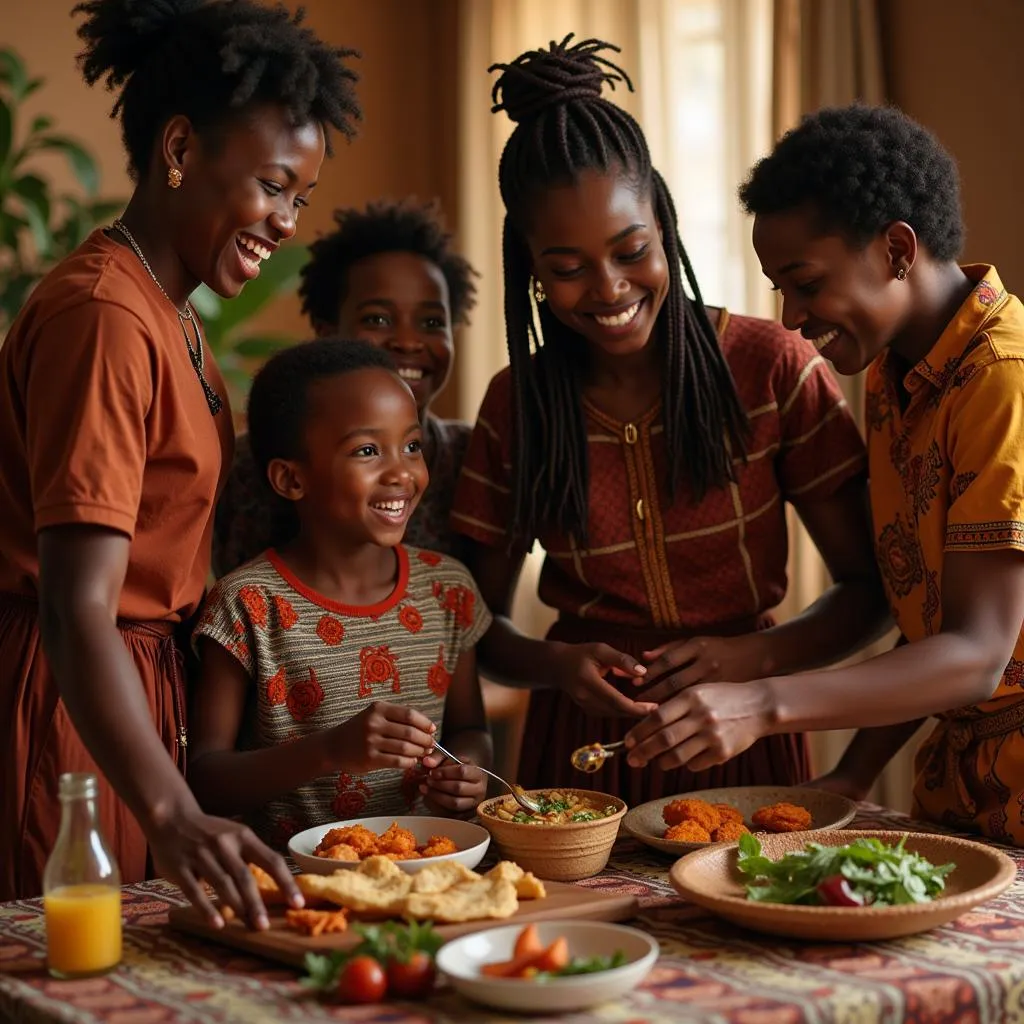 African Family Celebrating After Ritual
African Family Celebrating After Ritual
As we celebrate the beauty and diversity of African cultures, let us also recognize the vital role that family rituals play in shaping identities, fostering unity, and ensuring the transmission of cultural heritage for generations to come.
FAQ:
1. What are some common examples of African family rituals?
Common examples include birth ceremonies, naming ceremonies, coming-of-age rituals, marriage ceremonies, and funeral rites.
2. How long do African family rituals typically last?
The duration varies greatly depending on the specific ritual and cultural group. Some can last a few hours, while others may extend over several days or even weeks.
3. Are African family rituals only practiced in rural areas?
No, while more prevalent in rural communities, these rituals are also practiced in urban areas, often adapted to modern lifestyles.
4. Are outsiders welcome to witness African family rituals?
This depends on the specific ritual and cultural norms. It is always best to approach with respect and inquire beforehand.
5. How can I learn more about the specific rituals of a particular African culture?
Resources like academic journals, cultural centers, and reputable online platforms can provide valuable insights. Engaging with members of the specific cultural group is also an excellent way to learn firsthand.
Need more information? Explore these fascinating topics: African horn instrument, African tribe sex, African father and Indian mother children, African kalibar bone, African cichlid hap species.
Do you have other questions about African family rituals? Contact us at +255768904061, [email protected], or visit our office in Mbarali DC Mawindi, Kangaga, Tanzania. Our team is available 24/7 to assist you.

